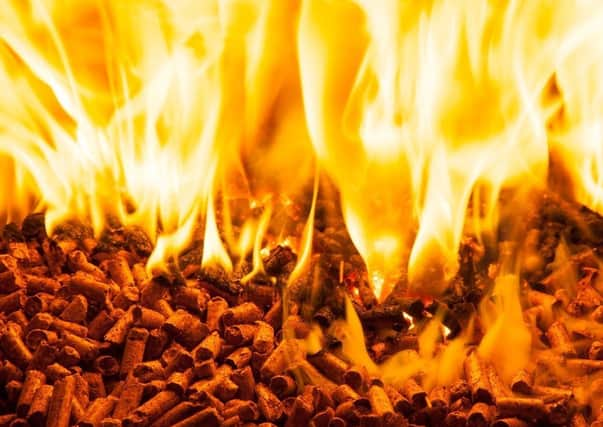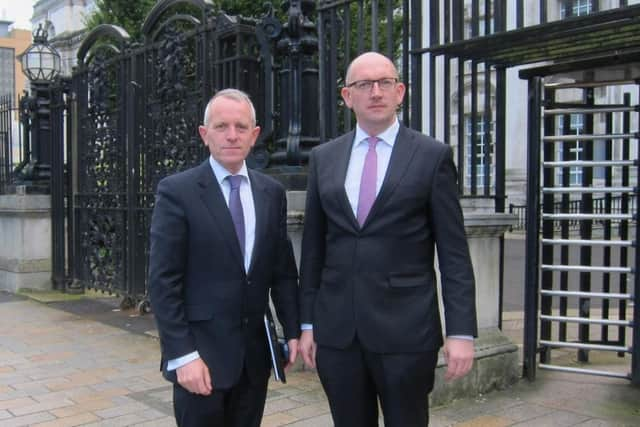RHI owners: The heating scheme was partly a success for the environment and should be fixed rather than shut


It was collapsed in part due to allegations of misuse of the scheme and the situation was used for political ends.
Four years later, every participant of the scheme has been robustly audited and that audit process is almost complete.
Advertisement
Hide AdAdvertisement
Hide AdFor my business, like many others, that audit process lasted almost a year.


It required hundreds of pages of records and took over a hundred hours to complete.
To say it was rigorous is an understatement.
To date only 1% of all sites have been found to have acted outside the terms of what the scheme was for and less than a quarter of 1% of total payments made since 2012 are being recouped by the Department for the Economy.
The RHI public inquiry found that the allegations made towards participants were without basis.
Advertisement
Hide AdAdvertisement
Hide AdWith hindsight, we now know that the reasons used by politicians for collapsing Stormont four years ago were unfounded.
The RHI scheme was partially successful.
Since its launch it has helped reduce Co2 emissions by 7% across Northern Ireland.
It achieved over half of the targets that had been set for renewable heat in NI by 2020 before the scheme was all but crushed by the devastating cut in support two years ago to some, but not all, of the participants.
Following those cuts a reversion to fossil fuels began and continues to escalate.
Advertisement
Hide AdAdvertisement
Hide AdBy late 2021 Stormont plans to close the scheme entirely, 15 years before it is meant to close.
Our politicians plan to throw the proverbial baby out with the bathwater, despite 99% of sites being found to be genuine.
And it’s not just biomass boilers that are affected by scheme closure and all support ceasing.
Ground source heat pumps and solar collectors which were supported by the RHI scheme will be switched off too, as they are too expensive to run without the necessary support.
Advertisement
Hide AdAdvertisement
Hide AdMeanwhile, the RHI scheme in Great Britain remains open for new applications and will run until at least 2042.
The RHI scheme in Ireland was recently launched and will run until at least 2040.
Scheme closure will mean a wide-scale reversion to burning fossil fuels by legitimate participants.
Renewable heat systems are just too expensive to run and maintain without support.
The infrastructure for renewable heat will collapse.
Systems will be scrapped.
Advertisement
Hide AdAdvertisement
Hide AdJob losses will ripple out across many postcodes in NI, affecting the sectors that received support for switching to renewables.
Care homes, engineering firms, GAA and golf clubs, sportswear, window blind and pallet manufacturers, agriculture, retail outlets and supermarkets, hospitality, GP surgeries and optometrists, hotels and offices, garden centres, churches and chapels.
The renewable fuel supply chain and qualified service engineers will no longer have sufficient demand to remain viable, due to a lack of critical mass.
All environmental benefit and forward momentum will be lost.
Advertisement
Hide AdAdvertisement
Hide AdNorthern Ireland is the only country in the whole of the European Union without any renewable scheme available to new entrants.
We all need to play a part in achieving net zero carbon emissions.
It’s time for our MLAs to take responsibility for supporting businesses and to consider fixing what is left of the scheme rather than taking the political option of complete closure.
Using a biomass boiler to produce the necessary heat required by my business, with an ongoing support mechanism, is my only alternative to burning fossil fuels.
Other technologies are unsuitable and impractical.
The scheme was suspended in 2016.
Advertisement
Hide AdAdvertisement
Hide AdWith the right political will, the scheme could be re-branded, re-opened and use the existing infrastructure as a base to grow from and to help achieve net zero targets by 2030 as a part of any commitment made within New Decade New Approach (NDNA) deal to restore Stormont last year.
Future support levels could be set at a sustainable level that are sufficient to encourage investment by those who genuinely want to move away from fossil fuels but at a level acceptable for long term sustainable use of tax-payers money.
Support the legitimate 99% who passed the audits.
Plan to encourage a wider range of renewable technologies in a bid to hit net zero targets.
There is over £30 million earmarked for renewable heat in Northern Ireland every year until 2042.
Advertisement
Hide AdAdvertisement
Hide AdThis support is ring-fenced and cannot be used for anything else.
Use it to build on the partial success that it already there, rather than scrapping the entire infrastructure.
Scheme closure will send out a message that people in NI can’t have confidence in any future government supported schemes.
Many businesses, including ours, were encouraged to move away from using fossil fuels and to embrace the opportunity to become greener and more environmentally friendly. The Kyoto agreement set targets for renewable energy and there were threats of significant fines from Europe if those targets weren’t achieved.
Advertisement
Hide AdAdvertisement
Hide AdThe scheme was promoted by the Department for Agriculture amongst others and over time momentum built and uptake of the scheme increased rapidly.
The financial security offered by a 20 year ‘grandfathered’ and ‘guaranteed’ scheme made it possible to borrow these monies.
Scheme closure will set NI back at least 10-15 years compared to the renewable heat sectors in GB and Ireland.
Scheme closure will be an embarrassment for the NI government at a time when the UN Climate Change Conference — COP 26 — is coming to Scotland later this year.
Advertisement
Hide AdAdvertisement
Hide AdScheme closure will unfairly penalise those businesses who played a genuine part in lowering Co2 emissions at the same time as making them uncompetitive with their peers in GB and Ireland.
Scheme closure will damage an already fragile economy further.
Scheme closure is unnecessary just because of the 1%.
The Department for the Economy have launched a public consultation on RHI scheme closure on their website.
If you agree that the scheme shouldn’t be closed but rather that it could be fixed, that an option of remaining open at a sustainable level of support is achievable, that there is a genuine opportunity to continue to reduce Co2 emissions across NI and that jobs could be protected, there is an opportunity to have your say.
Advertisement
Hide AdAdvertisement
Hide AdLet us use this opportunity to Reduce the impact to the environment rather than close the scheme and throw away all of the previous gains.
Reuse the existing infrastructure that is already there.
Recycle what is only partially broken rather than scrap it and put it into landfill.
• Tom Forgrave is a poultry farmer from Ballymoney and is a director of the Renewable Heat Association
——— ———
A message from the Editor:
Thank you for reading this story on our website. While I have your attention, I also have an important request to make of you.
Advertisement
Hide AdAdvertisement
Hide AdWith the coronavirus lockdown having a major impact on many of our advertisers — and consequently the revenue we receive — we are more reliant than ever on you taking out a digital subscription.
Subscribe to newsletter.co.uk and enjoy unlimited access to the best Northern Ireland and UK news and information online and on our app. With a digital subscription, you can read more than 5 articles, see fewer ads, enjoy faster load times, and get access to exclusive newsletters and content. Visit https://www.newsletter.co.uk/subscriptions now to sign up.
Our journalism costs money and we rely on advertising, print and digital revenues to help to support them. By supporting us, we are able to support you in providing trusted, fact-checked content for this website.
Alistair Bushe
Editor